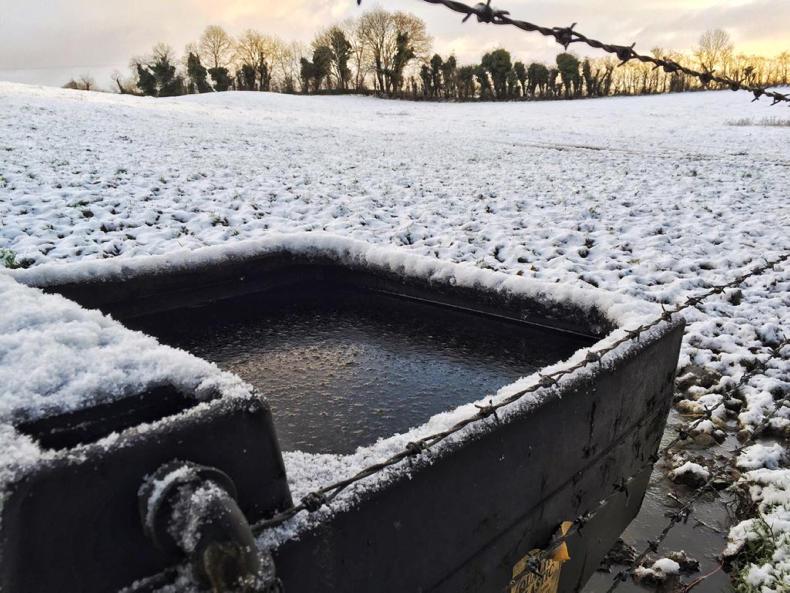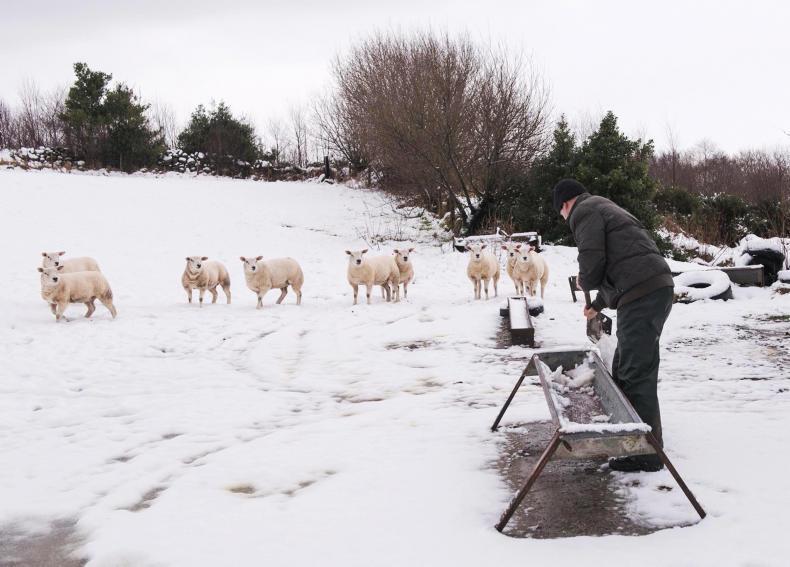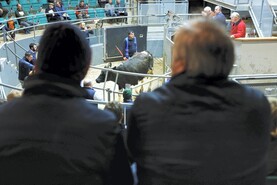As the country experiences its first big freeze of winter, the Department of Agriculture, Environment and Rural Affairs has some solid advice to help farmers during cold and unsettled weather over the winter period.
“Some time spent now, preparing your farm for the unexpected, could save you a lot of problems in the future,” Patrick Taggart from DAERA said.
Potential problems include frozen and burst pipes, interruption of water supply, flooding, difficulty in moving material or stock and difficulties with deliveries to the farmyard.
Taggart advised farmers to consider the main risk areas to their farm and keep an eye on the weather forecast.
Access
“Carefully consider whether you need to move animals to lower ground or fodder stocks to a more sheltered location. Will farm lanes become unsafe in the event of snow and ice? If so, consider the need for marker signs at the edges and/or alternative routes.
“Keep main access areas ice-free/salted to avoid potential accidents that may involve humans, animals, or machinery,” he said.
Taggart also told farmers to consider what extra storage is available for milk in bulk tanks if collections are disrupted and for extra feed if deliveries can’t get through for a few days.
Water
DAERA recommend having at least 24 hours of on-farm water requirement stored.
“Livestock drinking water accounts for between 50% and 75% of all water usage with lactating dairy cows drinking around 100 litres per day. Water is also needed for cleaning/hygiene,” he said.

He recommended marking the layout of pipes on a farm map, knowing where stop valves are, isolating water from areas of the farm not using water during the winter and keeping a supply of fittings.
Taggart also recommended checking meters for unexpectedly high readings, ensuring pipes in buildings are insulated, fixing dripping taps and tanks and ideally having underground pipes buried at least 75cm deep.
Read more
Snow drift warning for the weekend
Feeding in the freezing cold and frost
As the country experiences its first big freeze of winter, the Department of Agriculture, Environment and Rural Affairs has some solid advice to help farmers during cold and unsettled weather over the winter period.
“Some time spent now, preparing your farm for the unexpected, could save you a lot of problems in the future,” Patrick Taggart from DAERA said.
Potential problems include frozen and burst pipes, interruption of water supply, flooding, difficulty in moving material or stock and difficulties with deliveries to the farmyard.
Taggart advised farmers to consider the main risk areas to their farm and keep an eye on the weather forecast.
Access
“Carefully consider whether you need to move animals to lower ground or fodder stocks to a more sheltered location. Will farm lanes become unsafe in the event of snow and ice? If so, consider the need for marker signs at the edges and/or alternative routes.
“Keep main access areas ice-free/salted to avoid potential accidents that may involve humans, animals, or machinery,” he said.
Taggart also told farmers to consider what extra storage is available for milk in bulk tanks if collections are disrupted and for extra feed if deliveries can’t get through for a few days.
Water
DAERA recommend having at least 24 hours of on-farm water requirement stored.
“Livestock drinking water accounts for between 50% and 75% of all water usage with lactating dairy cows drinking around 100 litres per day. Water is also needed for cleaning/hygiene,” he said.

He recommended marking the layout of pipes on a farm map, knowing where stop valves are, isolating water from areas of the farm not using water during the winter and keeping a supply of fittings.
Taggart also recommended checking meters for unexpectedly high readings, ensuring pipes in buildings are insulated, fixing dripping taps and tanks and ideally having underground pipes buried at least 75cm deep.
Read more
Snow drift warning for the weekend
Feeding in the freezing cold and frost







 This is a subscriber-only article
This is a subscriber-only article











SHARING OPTIONS: